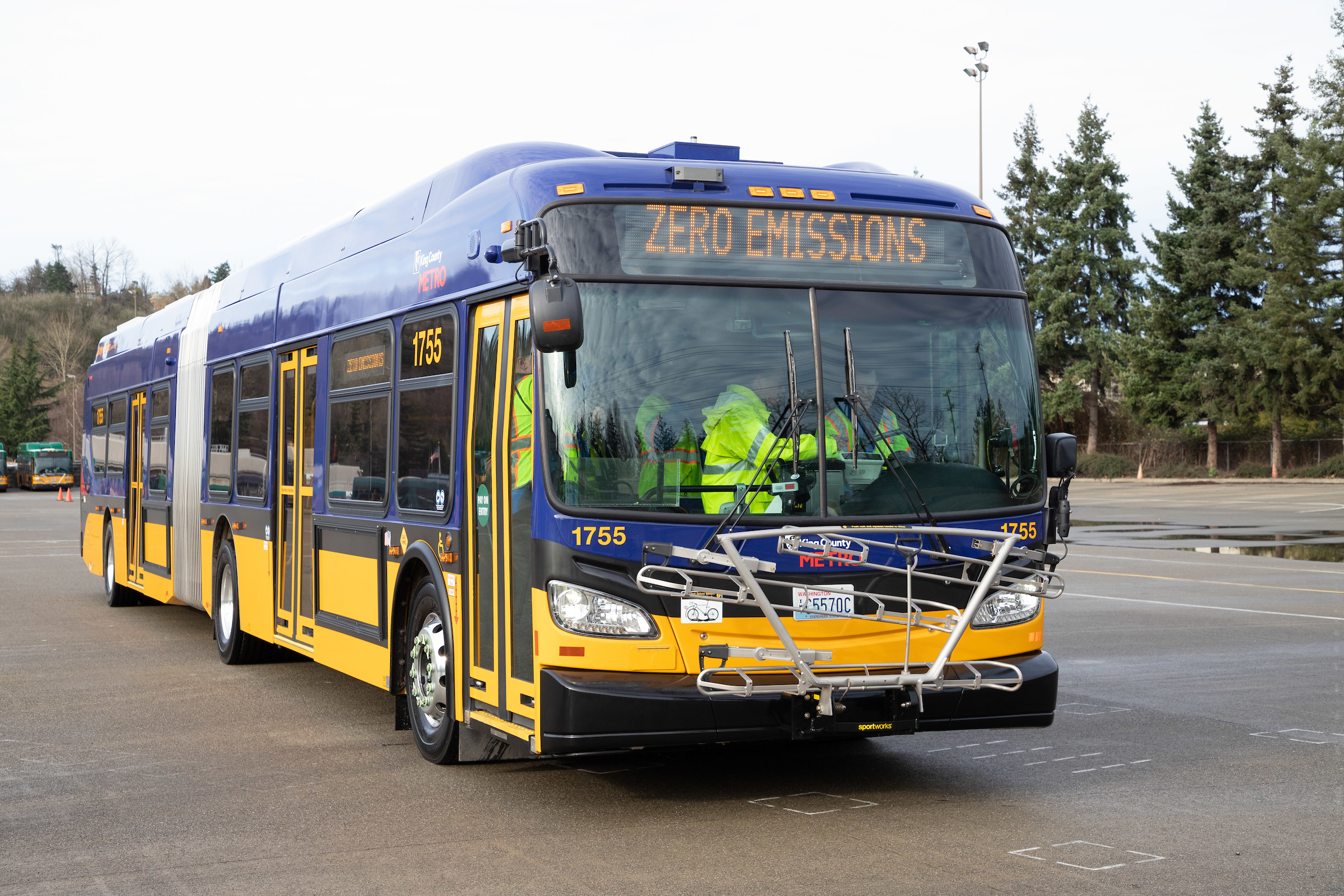On January 30th, King County Executive Dow Constantine announced an agreement to buy forty battery-electric buses, with an option for eighty more.
The county has been leasing a small number of electric buses from three separate companies since 2018, mainly to gather information on their reliability and provide feedback to the industry. The buses the county is purchasing, from manufacturer New Flyer, are valued at between $925,000 and $1.3 million each.
Funding for the initial $50 million purchase has been covered in part by grants from the Federal Transit Administration and the state Department of Ecology.
Metro is aiming to transition to an all-electric fleet by 2040, first announcing the plan back in 2017. Both 40′ and 60′ articulated models are currently being tested.
After a few years of testing, Metro now has more information about how the brand-new battery-electric technology react to the unique terrain, weather, and traffic of our region. It is encouraging to see that the agency felt comfortable enough to proceed to a first purchase order on-time, going by the timeline set forth at the establishment of the program.

The first forty buses will be sixty-foot articulated buses (the longer buses we see on the roads with two halves connected by a central node).
If the county decides to buy more, twenty can be articulated while the remaining sixty will be forty foot single-section buses.
Electric battery powered buses have so far been tested solely on the Eastside, since coverage areas are limited by where charging infrastructure is.
Metro currently has charging infrastructure at two locations: the East Base located in the new Spring District and at Eastgate Park & Ride.
Routes 226 and 241 have seen electric bus service over the last few years. The initial forty articulated buses are also likely to begin servicing the Eastside, especially on commuter routes from Eastgate heading into Seattle.
Infrastructure to accommodate an electric fleet is the next step in transitioning to an all-electric fleet, since the current Eastside-heavy setup limits the area that battery-electric buses can cover. Facilities are being built at the South Base in Tukwila for up to one hundred and twenty-five buses.
The two hundred and fifty additional buses that Metro plans to obtain by 2025 will be housed at a new annex adjacent to the existing South Base.
The battery-electric fleet is not the only initiative that Metro has in place to reduce its carbon footprint. The agency has one hundred and seventy-four electric trolleybuses in its fleet, using overhead wires for power.
The wires currently are concentrated throughout Downtown, Capitol Hill, First Hill, and Queen Anne. Branches extend as far as the Rainier Valley and Ballard, but the obvious limitation to the electric trolleybuses is the extensive fixed infrastructure required before service can begin in an area.
Trolleybuses also do not have batteries, which are a key engineering challenge for manufacturers in terms of durability and liability.
The new battery-electric fleet is a promising step to reduce the pollutive footprint of transportation throughout our region. You can see the new buses in action on King County TV’s Facebook page. They will hit the roads for general use by 2021.


A bit of good news for a change… I’ll take it!